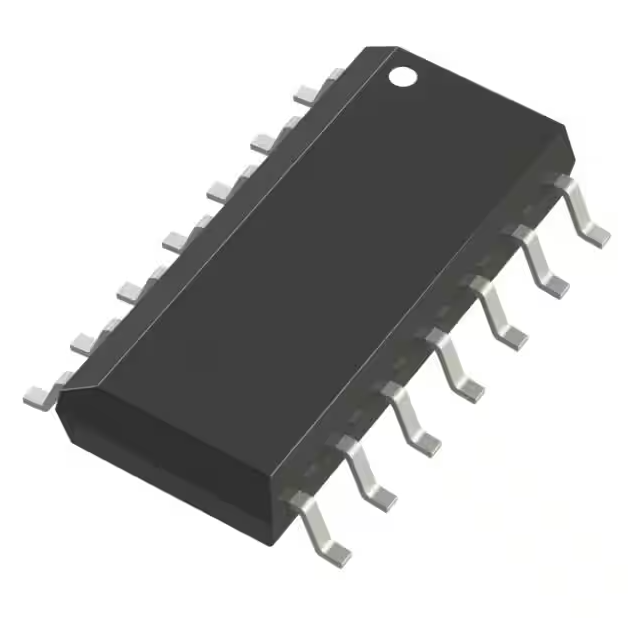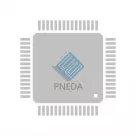When is a capacitor an AC short circuit? What does an AC short circuit mean?

A capacitor is an electronic component capable of storing electrical energy, which has the property of stopping the flow of current in a direct current circuit. In AC circuits, however, capacitors may behave differently. When the capacitor is short-circuited for an AC circuit, it means that the resistance of the capacitor is so small that the current can flow freely through the capacitor without much resistance. This article will answer the question of what is an AC short circuit and when a capacitor will experience an AC short circuit.
Ⅰ.Ac short circuit definition
In an AC circuit, the direction of the current changes with time. This means that the current will alternate between positive and negative directions. In contrast, the direction of current in a direct current circuit is always the same. For capacitors, in a direct current circuit, the charge in the capacitor accumulates between the poles, creating an electric field. When the capacitor charge is full, the capacitor will no longer allow the current to pass through, and the capacitor will create resistance to the current in the circuit.
However, in an AC circuit, the charge moves back and forth between the poles of the capacitor as the direction of the current changes. This back and forth charge causes an alternating electric field to form between the poles of the capacitor, making the resistance of the capacitor very small. This is what happens when the capacitor is short-circuited for an AC circuit.
In an AC circuit, a capacitor is considered an AC short circuit when the capacitor becomes so small that current can flow freely through the capacitor without too much resistance. This situation can cause too much current in the circuit, which can cause damage to the components in the circuit. Therefore, it is very important for engineers designing AC circuits to know when the capacitor will experience an AC short circuit.
Ⅱ.When will the capacitor have an AC short circuit?
When the capacitor will have an AC short circuit depends on the characteristics of the capacitor and the frequency of the AC circuit. In some cases, capacitors may appear as short circuits in low-frequency AC circuits, but not in high-frequency AC circuits. In this section, we will explore when the capacitor will experience an AC short circuit.
1, low frequency AC circuit
In low-frequency AC circuits, the resistance of capacitors is usually higher. This is because low-frequency currents change more slowly and it takes time for the charge to move from one electrode to the other. Therefore, the AC impedance of the capacitor will increase as the frequency decreases. When the impedance of the capacitor is high enough, the capacitor will no longer allow the current to pass through, and the capacitor will create resistance to the current in the circuit.
However, when the frequency is reduced to a certain extent, the impedance of the capacitor will approach zero. This is because low-frequency currents change more slowly and the charge can move freely between the poles of the capacitor. In this case, the capacitor will be a short circuit to the AC circuit.
2, high-frequency AC circuit
In high frequency AC circuits, the resistance of capacitors is usually low. This is because the high frequency current changes very fast and the charge can move quickly between the poles of the capacitor. Therefore, the AC impedance of the capacitor decreases as the frequency increases. When the impedance of the capacitor is low enough, the capacitor will allow the current to pass freely, and the capacitor will have little resistance to the current in the circuit.
However, when the frequency is raised to a certain extent, the impedance of the capacitor will again approach zero. This is because the rate of change of the high-frequency current is very fast and the charge can move back and forth between the poles of the capacitor very quickly. In this case, the capacitor will be a short circuit to the AC circuit.
Ⅲ.How to avoid capacitor AC short circuit?
In an AC circuit, the AC impedance of a capacitor changes with frequency. Therefore, when designing an AC circuit, engineers must consider the characteristics of the capacitor and the frequency of the AC circuit to ensure that the capacitor will not become an AC short circuit. Here are some ways to avoid capacitor AC short circuit:
1, select the appropriate capacitor
Choosing the right capacitor is the key to avoid AC short circuit of capacitor. Different types of capacitors have different characteristics and frequency responses. For example, aluminum electrolytic capacitors are usually suitable for low frequency applications, while ceramic capacitors are usually suitable for high frequency applications. Therefore, engineers must select capacitors suitable for specific applications and perform frequency response tests as needed.
2. Add current limiting resistance
In some cases, engineers can avoid capacitor AC short circuits by adding current-limiting resistors. The current limiting resistance limits the flow of current and raises the resistance of the capacitor to a high enough level to ensure that the capacitor does not become an AC short circuit. However, current-limiting resistors can also reduce the efficiency of the circuit and increase power losses.
3. Use filters
In some applications, engineers can use filters to avoid capacitor AC short circuits. The filter can filter out unwanted frequency components from the AC circuit, thus ensuring that the capacitor does not become an AC short circuit. However, filters also increase the complexity of the circuit and increase the cost.
Ⅳ.Conclusion
A capacitor is a common electronic component that plays an important role in a circuit. In an AC circuit, the capacitor may have an AC short circuit, which causes the current in the circuit to be too large, and even damages the components in the circuit. Therefore, it is very important to know when the capacitor will have an AC short circuit. Engineers can avoid capacitor AC short circuits by selecting appropriate capacitors, adding current-limiting resistors, or using filters.
The Products You May Be Interested In
 |
AIUR-10-332K | FIXED IND 3.3MH 150MA 11.8 OHM | 8478 More on Order |
 |
ASPI-8040S-470M-T | FIXED IND 47UH 1.55A 136 MOHM | 13968 More on Order |
 |
AMPMGEA-33.0000T3 | MEMS OSC XO 33.0000MHZ CMOS SMD | 6984 More on Order |
 |
AMPMEFC-2.5000T3 | MEMS OSC XO 2.5000MHZ CMOS SMD | 3402 More on Order |
 |
AMPMEEB-50.0000T3 | MEMS OSC XO 50.0000MHZ CMOS SMD | 8892 More on Order |
 |
AMPMAGC-32.0000T3 | MEMS OSC XO 32.0000MHZ CMOS SMD | 4302 More on Order |
 |
AMPMGGD-24.545454T | MEMS OSC XO 24.5455MHZ CMOS SMD | 5904 More on Order |
 |
AMPMEFC-33.3330T | MEMS OSC XO 33.3330MHZ CMOS SMD | 3402 More on Order |
 |
AMPMEEC-33.33333T | MEMS OSC XO 33.3333MHZ CMOS SMD | 6786 More on Order |
 |
AMPMEDD-54.0000T | MEMS OSC XO 54.0000MHZ CMOS SMD | 8280 More on Order |
 |
AMPMAGB-1.0000T | MEMS OSC XO 1.0000MHZ CMOS SMD | 3222 More on Order |
 |
AMPMDEA-4.0000 | MEMS OSC XO 4.0000MHZ CMOS SMD | 7236 More on Order |
 |
AX7DBF2-650.0000C | XTAL OSC XO 650.0000MHZ LVDS SMD | 3024 More on Order |
 |
AX5MBF4-614.4000C | OSC XO 614.4MHZ 2.5V CML | 5598 More on Order |
 |
AX7PAF1-360.0000T | XTAL OSC XO 360.0000MHZ LVPECL | 3456 More on Order |
 |
ASTMHTA-106.250MHZ-AR-E-T3 | MEMS OSC XO 106.2500MHZ LVCMOS | 7164 More on Order |
 |
ASE2-27.000MHZ-ET | XTAL OSC XO 27.0000MHZ CMOS SMD | 6534 More on Order |
 |
ASDM1-33.000MHZ-LC-T | MEMS OSC XO 33.0000MHZ LVCMOS | 7866 More on Order |
 |
ABM12W-33.3300MHZ-6-D2X-T3 | CRYSTAL 33.3300MHZ 6PF SMD | 5688 More on Order |
 |
ABM11W-28.3220MHZ-4-B2U-T3 | CRYSTAL 28.3220MHZ 4PF SMD | 6102 More on Order |
 |
ABM8W-12.2880MHZ-6-J1Z-T3 | CRYSTAL 12.2880MHZ 6PF SMD | 4950 More on Order |
 |
ABM11AIG-19.200MHZ-4Z-T3 | CRYSTAL 19.2MHZ 10PF SMD | 8802 More on Order |
 |
ABM8W-27.0000MHZ-8-B1U-T3 | CRYSTAL 27.0000MHZ 8PF SMD | 8928 More on Order |
 |
ABM11W-38.4000MHZ-8-D1X-T3 | CRYSTAL 38.4000MHZ 8PF SMD | 90666 More on Order |









